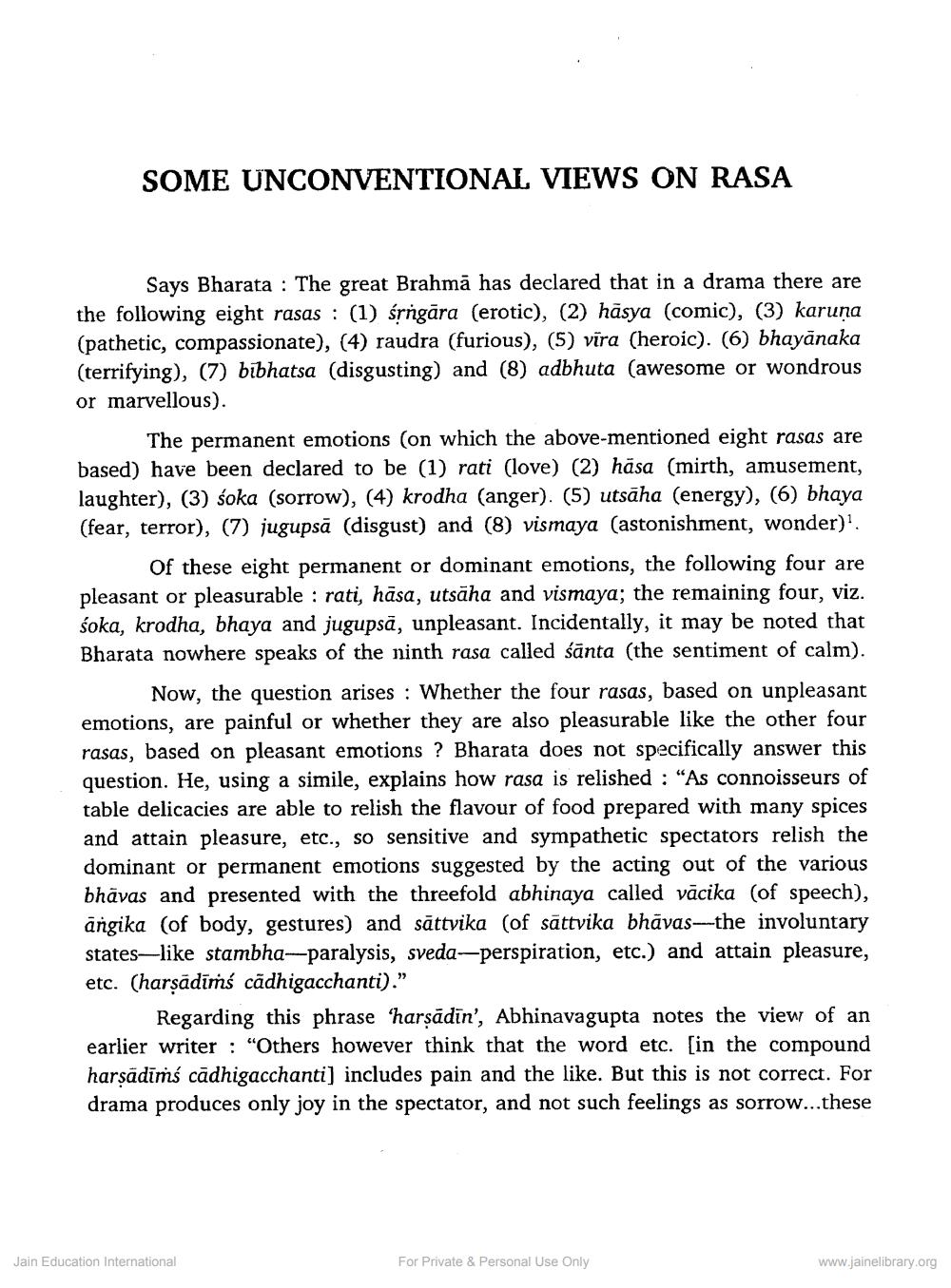________________ SOME UNCONVENTIONAL VIEWS ON RASA Says Bharata : The great Brahma has declared that in a drama there are the following eight rasas : (1) srngara (erotic), (2) hasya (comic), (3) karuna (pathetic, compassionate), (4) raudra (furious), (5) vira (heroic). (6) bhayanaka (terrifying), (7) bibhatsa (disgusting) and (8) adbhuta (awesome or wondrous or marvellous). The permanent emotions (on which the above-mentioned eight rasas are based) have been declared to be (1) rati (love) (2) hasa (mirth, amusement, laughter), (3) soka (sorrow), (4) krodha (anger). (5) utsaha (energy), (6) bhaya (fear, terror), (7) jugupsa (disgust) and (8) vismaya (astonishment, wonder)". Of these eight permanent or dominant emotions, the following four are pleasant or pleasurable : rati, hasa, utsaha and vismaya; the remaining four, viz. soka, krodha, bhaya and jugupsa, unpleasant. Incidentally, it may be noted that Bharata nowhere speaks of the ninth rasa called santa (the sentiment of calm). Now, the question arises : Whether the four rasas, based on unpleasant emotions, are painful or whether they are also pleasurable like the other four rasas, based on pleasant emotions ? Bharata does not specifically answer this question. He, using a simile, explains how rasa is relished : "As connoisseurs of table delicacies are able to relish the flavour of food prepared with many spices and attain pleasure, etc., so sensitive and sympathetic spectators relish the dominant or permanent emotions suggested by the acting out of the various bhavas and presented with the threefold abhinaya called vacika (of speech), angika (of body, gestures) and sattvika (of sattvika bhavas-the involuntary states--like stambha--paralysis, sveda-perspiration, etc.) and attain pleasure, etc. (harsadims cadhigacchanti)." Regarding this phrase 'harsadin', Abhinavagupta notes the view of an earlier writer : "Others however think that the word etc. [in the compound harsadims cadhigacchanti) includes pain and the like. But this is not correct. For drama produces only joy in the spectator, and not such feelings as sorrow...these Jain Education International For Private & Personal Use Only www.jainelibrary.org




